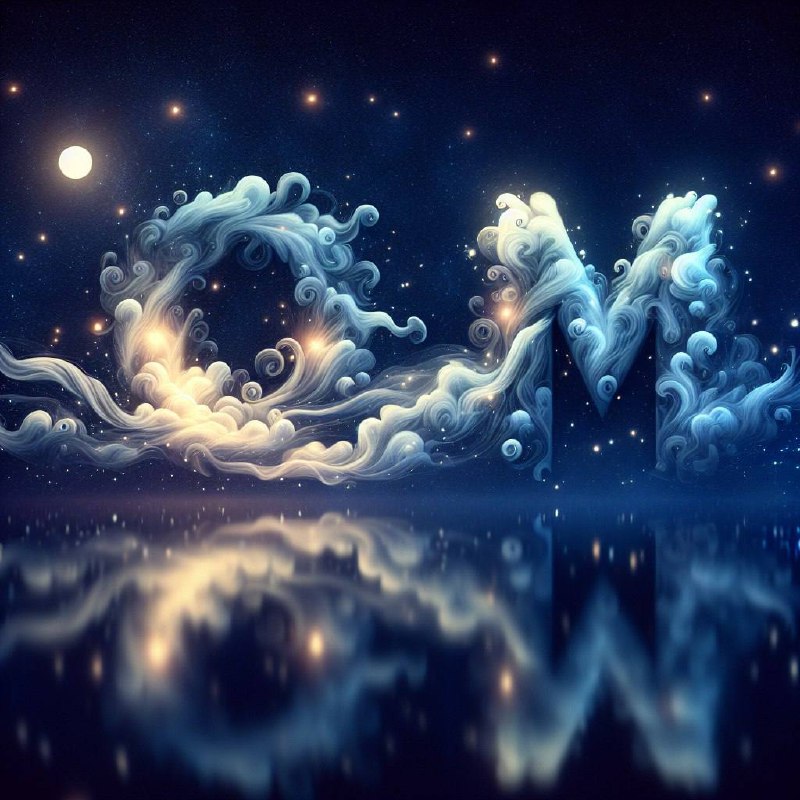
Facts About Dreams
Did you ever wake up from a dream feeling uncertain, interested, or maybe even frightened? You’re not the only one. People have been intrigued by dreams for years, wondering what they mean and where they come from. Therefore, in this article, we explore 50 fascinating facts about dreams, ranging from their scientific explanations to their importance in our psyches. Thus, let’s take a ride through the world of dreams and discover some really astonishing things!
Have an interesting dream to share? Join Questmist to document your dreams, get expert interpretations, and connect with a community of dreamers — Register Now or Login to begin your journey!
Don’t forget to try Questmist’s AI dream interpreter—click here to interpret your dreams!
The Science of Dreaming: What Happens While We Sleep?
Everyone dreams, even if they don't remember it.
Explanation:
Your brain always dreams during sleep, but you may not recall them upon waking.
We spend about two hours dreaming each night.
Explanation:
On average, humans dedicate around 2 hours of their sleep time to dreaming.
Dreams occur mainly during REM (Rapid Eye Movement) sleep.
Explanation:
Most vivid dreams happen during the REM stage of sleep when your eyes move rapidly.
Your brain is more active during REM sleep than when you're awake.
Explanation:
Brain activity during REM sleep can exceed that of waking hours.
Blind people dream too, often using their other senses.
Explanation:
People who are blind experience dreams through non-visual senses like sound, touch, and smell.
You can have multiple dreams in one night.
Explanation:
It's common to have several different dreams during a single night's sleep.
Dreams can last anywhere from a few seconds to 20-30 minutes.
Explanation:
The duration of dreams varies widely, from brief flashes to extended narratives.
External stimuli, like sounds or smells, can influence your dreams.
Explanation:
Real-world sensory inputs can be incorporated into your dream content.
Some people can control their dreams (called lucid dreaming).
Explanation:
Lucid dreamers are aware they're dreaming and can sometimes direct the dream's course.
Dreams help process and consolidate memories.
Explanation:
Dreaming plays a role in organizing and storing information from your waking life.
Common Dream Symbols and Their Meanings: Decoding Your Nighttime Adventures
Falling dreams often relate to feeling out of control in your waking life.
Explanation:
Dreams of falling may reflect feelings of insecurity or loss of control in reality.
Being chased in a dream might mean you're avoiding something in reality.
Explanation:
Chase dreams could indicate you're running from a problem or fear in your waking life.
Flying dreams can symbolize freedom or a desire to escape.
Explanation:
Dreams of flying often represent a longing for liberation or transcendence.
Teeth falling out in dreams might represent anxiety about your appearance.
Explanation:
Tooth loss dreams may reflect concerns about attractiveness or self-image.
Showing up naked in public in a dream could indicate vulnerability.
Explanation:
Public nudity dreams often symbolize feeling exposed or unprepared in some area of life.
Water in dreams often symbolizes emotions.
Explanation:
The state of water in dreams (calm, stormy, etc.) can represent your emotional state.
Dreams about death don't necessarily mean actual death – they can represent change.
Explanation:
Death in dreams often symbolizes the end of one phase and the beginning of another.
Animals in dreams often represent aspects of yourself.
Explanation:
Dream animals may embody qualities you possess or wish to develop.
Houses in dreams can symbolize different parts of your psyche.
Explanation:
Different rooms or areas of a dream house might represent various aspects of your personality.
Dreams about taking a test might reflect feelings of being judged or evaluated.
Explanation:
Test dreams often relate to self-assessment or fear of failure in waking life.
You don't need to buy or pay for a subscription to Dream Journal. Join Questmist to document your dreams, get expert interpretations, and connect with a community of dreamers — Register Now or Login to begin your journey!
The Psychology of Dreams: What Your Dreams Say About You
Freud believed dreams were a window into our unconscious desires.
Explanation:
Freud saw dreams as expressions of repressed wishes and unconscious thoughts.
Jung thought dreams reflected both personal and collective unconscious.
Explanation:
Jung believed dreams contained both individual and universal symbolic meanings.
Modern psychology sees dreams as a way to process emotions and experiences.
Explanation:
Contemporary psychologists view dreams as tools for emotional regulation and memory consolidation.
Recurring dreams often point to unresolved issues in your life.
Explanation:
Dreams that repeat may indicate ongoing concerns or problems needing attention.
Nightmares might be your brain's way of preparing for potential threats.
Explanation:
Frightening dreams could be a mental rehearsal for dealing with real-life dangers.
Dreams can help with problem-solving and creativity.
Explanation:
The brain's relaxed state during dreams can lead to novel solutions and ideas.
Your dreams might reflect your current stress levels.
Explanation:
High stress in waking life often correlates with more frequent or intense dreams.
Positive dreams can improve your mood the next day.
Explanation:
Pleasant dreams can have a lasting positive effect on your waking emotions.
Dreams can help you practice social skills.
Explanation:
Social interactions in dreams may serve as practice for real-life social situations.
Some therapists use dream analysis as part of treatment.
Explanation:
Exploring dream content can provide insights useful in therapeutic settings.
Historical Perspectives on Dream Interpretation: From Ancient Times to Today
Ancient Egyptians believed dreams were messages from the gods.
Explanation:
In ancient Egypt, dreams were seen as divine communication requiring interpretation.
In ancient Greece, people visited dream oracles for guidance.
Explanation:
Greeks sought dream interpretations at special sanctuaries dedicated to this purpose.
Native American cultures often saw dreams as a way to communicate with spirits.
Explanation:
Many Native American traditions view dreams as a bridge to the spirit world.
The Chinese believed dreams were a way to visit the world of the dead.
Explanation:
Ancient Chinese thought considered dreams a means of connecting with deceased ancestors.
Medieval Europeans thought dreams could predict the future.
Explanation:
In medieval Europe, dreams were often seen as prophetic visions.
Freud's "The Interpretation of Dreams" (1900) sparked modern dream analysis.
Explanation:
Freud's work laid the foundation for contemporary psychological dream interpretation.
In the 1950s, scientists discovered REM sleep, changing our understanding of dreams.
Explanation:
The identification of REM sleep revolutionized scientific dream research.
Today, we use brain imaging to study dreams scientifically.
Explanation:
Modern technology allows researchers to observe brain activity during dreaming.
Some cultures still view dreams as spiritually significant.
Explanation:
Many societies continue to attribute spiritual or mystical importance to dreams.
Dream interpretation remains popular in self-help and personal growth circles.
Explanation:
Many people find value in exploring their dreams for personal insight and development.
Weird and Wonderful Dream Facts: The Surprising Side of Slumber
You can't read or tell time accurately in dreams.
Explanation:
The brain's language and time-perception centers don't function normally during dreams.
If you die in a dream, you don't actually die in real life.
Explanation:
Contrary to myth, dream death doesn't cause physical death.
Not everyone dreams in color – some people dream in black and white.
Explanation:
Some individuals, especially those who grew up with black and white TV, may dream without color.
You can have false memories of dreaming.
Explanation:
The brain can sometimes create artificial memories of dreams that didn't actually occur.
Some people act out their dreams (a sleep disorder called REM behavior disorder).
Explanation:
This condition causes individuals to physically move according to their dream actions.
Certain foods might influence your dreams.
Explanation:
Some foods or dietary habits may affect dream content or vividness.
You can't sneeze in your dreams.
Explanation:
The physical act of sneezing is typically absent from dream experiences.
Dreams can be a source of artistic and scientific inspiration.
Explanation:
Many creative and innovative ideas have originated from dreams.
Some people claim to have shared dreams with others.
Explanation:
There are anecdotal reports of individuals experiencing the same dream simultaneously.
There's a rare condition where people can't dream at all.
Explanation:
Some neurological conditions can prevent individuals from experiencing dreams.
Conclusion: The Ongoing Mystery of Dreams
Dreams, as we have seen, are a captivating component of human life. From the way they help in processing emotions and memories to their potential to inspire creativity, dreams continue to fascinate us. While a lot has been learned by science on how dreaming works, there is still much about it that remains unknown.
So next time you wake up from an intense dream, just take some time to ponder it. What could it be telling you about your thoughts, feelings, or life? By learning how to pay attention to our dreams and interpret them, we may discover surprising truths about ourselves and our universe.
Keep in mind that everybody’s dreams are unique and there is no universal approach to interpreting them. Trust your instincts; think about things going on in your life at the moment and do not hesitate to ask for help if your dreams disturb you. Have a nice sleep!

You must be logged in to post a comment. Please Login or Register .